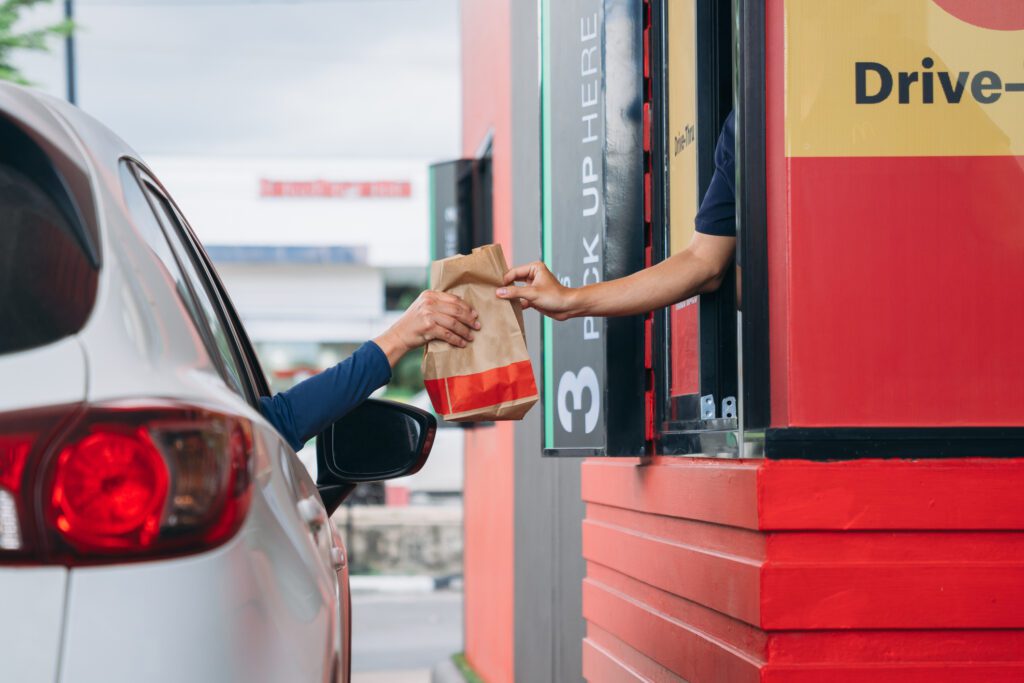Quick-Service Restaurant (QSRs) Technology
Quick-Service restaurants (QSRs) are at a crucial turning point on their technology journey. The tools available now enable drastic leaps forward in optimizing labor, enhancing the customer experience, mitigating risk, and making data-driven decisions.
The question is less about whether the tech exists and more about which tech to use and who to rely on for the digital infrastructure needed to power it. Here are some of the technologies guiding the future of the fast food industry.
QSR’s and Artificial Intelligence
The market valuation for AI in the restaurant industry is around $9.68 billion, and analysts are expecting it to spike to $49 billion over the next five years. What’s driving this growth? AI has opened a range of opportunities for improving customer experiences and creating more efficient systems for QSRs.
QSR Customer Service
Chatbots and virtual assistants powered by AI can enable human-like interactions with customers without a human having to lift a finger. For instance, QSR customers can ask a chatbot a variety of questions and get accurate, satisfying answers. For example, they can pose queries such as:
- Which meals are on sale today?
- How much can I buy with $15?
- About how long will it take for my order to be ready?
- Can you handle an order for 20 people?
- What are your vegan options?
- How many calories are in this meal?
Predictive Ordering
AI algorithms can predict what customers will want and use that information to personalize recommendations. In this way, customers don’t have to spend several confusing minutes scouring your menu. They can simply place the order that the AI system recommends — or make a few adjustments if they’re feeling like something a little different.
Demand Forecasting
Inventory management systems use artificial intelligence to predict demand according to customer buying behavior and external factors. For instance, an AI-powered solution can tell a restaurant approximately how many customers it will have following a local high school graduation, the ingredients it needs to stock up on, and even which suppliers to use for the best deals.
Dynamic Pricing
AI systems can adjust menu prices in real time using factors such as the number of customers ordering certain items, the weather, or the volume of customers in the restaurant. As each demand metric rises, the system can inch the price higher, maximizing profits. Then, when sales slump, the system can lower prices to stimulate higher demand.
Automation
Even though there are several automated technologies changing the QSR industry, here are the ones making the biggest splash.
Kitchen Robotics
Instead of using humans to perform repetitive tasks, you can use a robot. For instance, a robot can grill burgers, dip fries in a fryer, and put orders together. According to a report by Reuters, Starbucks plans on using coffee-making robots in around 10% of its stores starting this year.
While the upfront cost of a robot may be significant, when you factor in rising minimum wages, many of them would likely pay for themselves long before they reach their end of life.
Quick-Service Self-Ordering Kiosks
With self-ordering kiosks, you put customers in control of the ordering process. Rather than going back and forth with someone behind the counter, they can choose what they want, customize it, and even pay without having to leave your kiosk. By setting up several kiosks, you can serve many customers in far less time while simultaneously making it easier for them to get the goodies they crave.
Automated Inventory Management
Automated inventory management systems can track your inventory levels and predict future demand. They can then use this data to automate elements of the ordering process. This not only increases the accuracy of your inventory management solution but also speeds up the fulfillment process. You can even use automated inventory management to save money, especially when it comes to ordering less-perishable items in bulk.
Delivery Robots
Autonomous vehicles are revolutionizing the delivery experience, both for drivers and hungry customers. For example, a delivery robot can automatically plot the fastest route to take, based on weather and traffic conditions, for a series of five orders. This ensures customers get their meals sooner while making the best use of fuel, vehicles, and the time of delivery personnel.
Automated Drive-Thru Ordering
McDonald’s has teamed up with IBM to create a system that uses natural language processing to take orders in multiple languages as customers roll up in their cars. The system will empower customers to place orders and change them as they’d like. This frees up existing staff to focus on providing better customer service, cleaning the establishment, and answering questions about orders or menu options.
The Future of Fast Food and Quick-Service Restaurants
Technology has brightened the horizon of fast food by making hyper-efficient solutions possible and creating more personalized experiences for patrons. For example, QSRs can benefit from:
- Ghost kitchens. These are delivery-only restaurants that only send food out to customers instead of hosting diners in-house. By eliminating the need for eating space, tables, chairs, dishes, utensils, and the equipment used to clean and maintain them, these facilities save significant money on overhead.
- Virtual brands. A virtual brand is a restaurant concept that only exists online. Customers place orders and get meals packaged with small elements of the company’s branding while the rest of the brand collateral remains digital.
- Personalization at scale. AI can figure out what someone is most likely to want based on what they’ve tasted in the past. This gives patrons menus customized to their preferred flavors, dietary restrictions, and price points.
- Workforce opportunities. Using AI, you can train and retrain employees, automating their learning process. For example, an AI-powered training system can give an employee a quiz about something they just learned and then design questions based on their performance. Each question reinforces the employee’s learning while assessing their knowledge.
The Strategic Value of a Technology Partner Like Cox Business for Quick-Service Restaurants
The possibilities are endless. However, the versatility of AI and automation technologies can also make it difficult to figure out exactly how to use them to power your QSR business forward. This is why successful QSR companies are turning to Cox Business to guide them through their tech implementation. With a partner like Cox Business, you gain access to:
- Expertise and guidance. You don’t have to navigate the complicated tech landscape on your own because you have experienced professionals at your side.
- Seamless implementation. With experienced AI automation professionals on your team, you streamline the implementation process.
- High-speed connectivity. Dependable, fast internet eliminates lags and dropouts. This results in mobile apps that work exactly how customers expect, easy online ordering, and the ability to optimize operations using data analysis.
- Cloud solutions. You get a scalable, versatile, secure infrastructure with a technology partner that understands how to use the cloud. In this environment, you have the freedom to store data, perform analytics, and design and deploy apps for your business.
- With a technology partner like Cox Business, you have the latest data protection and security tools, which can greatly reduce the risk of successful cyberattacks.
The specific technologies that will bring the most benefit to your QSR will vary based on your current and future business models. It’s best to get started now by exploring what’s possible when you partner with Cox Business for your Quick-Service Restaurant tech solution. You get seasoned pros who understand the challenges and opportunities in the QSR sector. They also know what’s worked in the past for similar companies and can offer suggestions to help you outperform your competition.
- Private Networks – A Key Cybersecurity Safeguard for State and Local Government Agencies - March 20, 2025
- Cox Business and Cox HN Lead Event Connectivity at CES 2025 - February 25, 2025
- How High-Speed Connectivity Fuels AI Efficiency Across Industries - December 19, 2024



